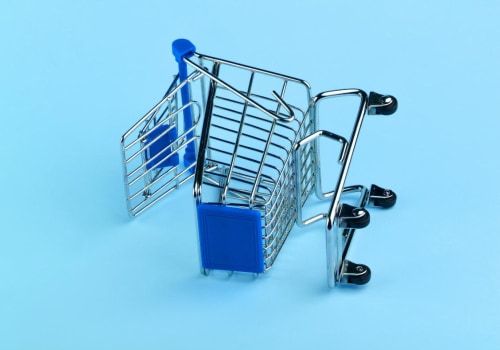For online stores and websites, offering the right payment gateways and checkout options is essential for providing an enjoyable and secure shopping experience for customers. From credit cards to digital wallets and from one-click payments to installment plans, there are many different payment gateways and checkout options available to make the online shopping experience as convenient and secure as possible. In this article, we will explore the different types of payment gateways and checkout options, as well as their advantages and disadvantages, to help you decide which one is right for you. The first step in understanding payment gateways is to familiarize yourself with the different types that are available. There are two main categories: direct gateway and third-party gateway.
A direct gateway processes payments directly through the merchant's website, while a third-party gateway processes payments through a third-party provider. The two most popular third-party payment gateways are PayPal and Stripe. Each type of payment gateway offers its own benefits and drawbacks, so it's important to consider which type is best for your business. For example, direct gateways are typically more secure than third-party gateways, but they can also be more expensive.
On the other hand, third-party gateways are generally less expensive but may not be as secure. Once you've chosen a payment gateway, the next step is to select the checkout option you want to use. Common checkout options include single-page checkout, multi-page checkout, and mobile checkout. Each option has its own advantages and disadvantages, so it's important to consider which one is right for your business.
For example, single-page checkout is often faster and easier for customers, but it may not be as secure as multi-page checkout. Finally, it's important to make sure you're compliant with all applicable laws and regulations when setting up your payment gateway and checkout options. This includes understanding any applicable data privacy laws and making sure you have all of the necessary security measures in place to protect your customers' information.
Types of Payment Gateways
When it comes to payment gateways, there are two main types: direct gateways and third-party gateways. Direct gateways are integrated directly into a website, allowing customers to make payments without leaving the site.This type of gateway is especially useful for larger businesses that can afford to invest in the technology and infrastructure required for this setup. Third-party gateways, on the other hand, require customers to leave the website and provide payment details on a third-party payment processor's website. This setup is often more affordable for smaller businesses, but it can be less secure and require more steps for customers. It is important to consider both options when choosing a payment gateway for your business.
Each type of gateway has its own advantages and disadvantages, so it's important to choose one that best suits your needs.
Checkout Options
When it comes to payment gateways and checkout options, there are a variety of choices available. Depending on the type of business you run, you can select from online shopping carts, hosted payment pages, and payment integrations with third-party vendors. Each option has its own advantages and disadvantages. Online shopping carts allow customers to add multiple items to their cart and make a single payment at the end. This provides a convenient way for customers to shop without having to leave the website.Hosted payment pages are often used by merchants who want to keep customers on their own website but still process transactions via a third-party provider. Finally, some payment gateways can be integrated with third-party vendors such as PayPal or Stripe, allowing customers to make payments using their preferred method. When choosing a checkout option for your business, it’s important to consider the type of products or services you offer, the customer experience you want to provide, and any other requirements you may have. You should also look into the fees associated with each option and compare them to find the most cost-effective choice for your business. No matter which option you choose, it’s important to ensure that your payment gateway is secure and compliant with data security standards. This will help protect your customers’ sensitive information and ensure that all payments are processed safely.
Compliance Considerations
When selecting a payment gateway and checkout option for your online store or website, it is important to understand applicable data privacy laws and make sure the necessary security measures are in place.As the owner of an online store, you are responsible for collecting, storing, and processing customer information. It is important to be aware of all applicable data privacy laws and ensure that your payment gateway is compliant with them. Data security measures should also be taken into consideration. Payment gateways should have appropriate data encryption, authentication protocols, and other processes in place to ensure customer information is safe. It is important to research the security measures offered by different payment gateways before selecting one. In addition to these considerations, you should also make sure the payment gateway and checkout options you select can handle the payment methods accepted by your customers.
Different payment gateways may support different payment methods, so it is important to make sure the payment gateway you choose is compatible with the payment methods your customers prefer.
Choosing the Right Payment Gateway
When selecting a payment gateway for your online store or website, there are several important factors to consider. Cost, security, and compliance are all important elements in selecting the right payment gateway for your business. Cost is a major factor in choosing a payment gateway. Different gateways have different fees associated with them, so it's important to compare them before making a decision.Some gateways also offer discounts for larger volumes of transactions. Additionally, some gateways offer subscription plans that may be beneficial depending on your business's needs. Security is another important consideration when choosing a payment gateway. Look for gateways that offer fraud protection, encryption, and other security features to keep customer data safe. Additionally, many payment gateways use tokenization, which allows customers to securely save their payment information without compromising their security. Compliance is also an important factor when selecting a payment gateway.
Make sure the payment gateway you choose is compliant with the laws and regulations of your country or region. Additionally, make sure the gateway you choose supports the currencies of your customers. By taking into account these factors, you can make an informed decision when selecting the right payment gateway for your business. Consider the cost, security, and compliance of each payment gateway carefully before making a final decision. Having a secure payment gateway and checkout options is an essential part of any online store or website. By understanding the different types of payment gateways, choosing the right one for your business, and ensuring compliance with applicable laws and regulations, you can ensure that your customers have a safe and secure payment experience.
With the right payment gateway and checkout options, you can ensure that your business is well-equipped to meet your customers' needs.







